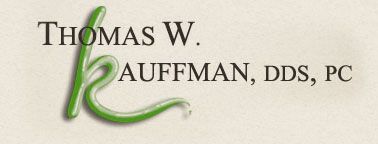What to Expect During Your First Visit to a New Dentist
Visiting a new dentist can feel intimidating, especially if it’s been a while since your last appointment or you’re simply not sure what to expect. It’s completely normal to feel a little anxious, but rest assured—your first visit is an opportunity to get to know your dentist, address any concerns you might have, and establish a foundation for a positive, long-term relationship.
Whether you’re coming in for a routine cleaning, a check-up, or to discuss specific dental needs, understanding what will happen during your appointment can help ease your nerves. Here’s a breakdown of what you can expect when you visit Thomas W. Kauffman, DDS, PC for the first time, and how we ensure that every visit is comfortable and stress-free. If you’re ready to schedule your first appointment, don’t hesitate to give our Atlanta dental office a call at (404) 524-1981!
The Routine During a Visit to a New Dentist
1. A Warm Welcome and Getting Settled
When you arrive at the dental office, you’ll likely be greeted by our Atlanta dental staff. They’ll ask you to fill out some basic paperwork—things like your medical history, any allergies, and your insurance details. Don’t worry if you’re unsure about some of the questions; the dental staff will help guide you through the forms and answer any questions.
After that, you’ll be asked to sit in the waiting area for a short time before your appointment. This gives you a chance to relax before heading into the treatment room. Many modern dental offices have comfortable, welcoming environments, with soothing colors and even entertainment options like TVs or music, to make your visit as stress-free as possible.
2. Meeting the Dentist and Discussing Your Health History
Once it’s time for your appointment, you’ll be escorted to the treatment room by a dental hygienist or assistant. The dentist will come in shortly after to introduce themselves, ask about any concerns you may have, and discuss your overall oral health. If it’s your first time at this dentist’s office, they’ll typically ask for your dental history. For example, Dr. Thomas Kauffman would typically ask: have you had any past procedures, do you have any current dental pain, or is there anything you’d like to address today?
This is a great time to bring up any dental anxieties or sensitivities you might have. A good dentist will take these into consideration and help make your visit more comfortable.
3. The Initial Examination
Next, the dentist will begin with a general examination of your teeth, gums, and mouth. This may include:
- Visual Inspection: They will look for any signs of cavities, gum disease, or other oral health concerns.
- Checking Existing Work: If you have any dental fillings, crowns, or previous dental work, the dentist will ensure these are still in good condition.
- Palpating the Jaw and Neck: The dentist may feel around your jaw, neck, and lymph nodes to check for any lumps, swelling, or discomfort, which helps ensure there are no underlying issues.
Don’t be surprised if the dentist also checks the inside of your mouth and your gums with a small mirror and probe, looking for any areas of concern.
4. X-Rays (If Needed)
If the dentist determines that additional images are needed to fully assess your oral health, they may take dental X-rays. This could be a panoramic X-ray (which shows your entire mouth) or bitewing X-rays (which focus on your upper and lower teeth in the back). The X-ray process is quick and simple, involving a small sensor in your mouth that takes images while you hold still for a few seconds.
X-rays help the dentist spot any issues that are not visible during the visual exam—such as cavities between your natural teeth, bone loss, or impacted teeth. They’re an essential tool in helping you receive the most accurate diagnosis.
5. Teeth Cleaning
After the exam, you’ll move on to the dental cleaning portion of your visit. The hygienist will use special tools to remove plaque and tartar buildup from your teeth. This part of the appointment involves:
- Scaling: Using small instruments, the hygienist carefully scrapes away plaque and tartar that has accumulated on your teeth and along the gumline. You might hear scraping sounds, but it’s completely normal and not painful.
- Polishing: After scaling, the hygienist will polish your teeth with a gritty toothpaste that helps remove surface stains and leaves your teeth feeling smooth and clean.
- Flossing: The hygienist will also floss your teeth to remove any remaining debris and ensure that your teeth are truly clean.
For many, the cleaning portion is the most relaxing part of the visit, as it leaves your mouth feeling fresh and rejuvenated. If you have sensitive gums, don’t hesitate to let the hygienist know—they’ll adjust the process to make you more comfortable.
6. Discussion of Findings and Treatment Plan
Once the cleaning is done, the dentist will return to go over their findings from the exam and X-rays (if taken). They’ll explain any issues they observed—whether it’s a cavity, gum disease, or just some areas that need attention—and discuss your treatment options.
If there are no major concerns, the dentist may simply recommend routine maintenance, such as brushing and flossing tips, and possibly suggest a follow-up visit in six months for a regular checkup. However, if any treatments or procedures are needed, the dentist will work with you to create a treatment plan that fits your needs and schedule.
7. Scheduling Future Visits and Payment
Before leaving, you’ll typically make arrangements for your next appointment. This might be a follow-up for a procedure, or simply a routine cleaning in six months. Many offices will also offer you the option to schedule all future visits in advance, so you can stay on top of your oral health.
At this point, you’ll also go over payment details. If you have dental insurance, the receptionist will help you verify coverage and file claims. If not, the office staff will provide payment options and explain any financing or payment plans that may be available.
8. Take Home Advice
After your appointment, you may receive some take-home materials with advice on maintaining your oral health. These could include tips for brushing and flossing, information on mouthwash or fluoride treatments, or even a reminder of what the dentist discussed during your visit. If you had a cleaning or treatment, you might receive aftercare instructions to help ensure your teeth and gums stay healthy after your appointment.
Final Tips for a Smooth First Visit:
- Arrive Early: Give yourself a little extra time to fill out paperwork and get comfortable in the office.
- Be Honest: Share any concerns or anxieties you have with the dentist. A good dentist will work with you to make your visit as comfortable as possible.
- Ask Questions: Don’t be afraid to ask about treatment options, your oral health, or anything else that’s on your mind. Dentists are there to help!
- Stay Calm: A dentist visit doesn’t have to be stressful. Take deep breaths, and trust that the team is there to take care of you.
Enjoy a Stress-Free First Experience With Dr. Kauffman
Visiting a new dentist may feel like a big step, but remember—your oral health is an important part of your overall well-being. If you’re looking for a dentist who offers a friendly and professional experience, schedule an appointment with Thomas W. Kauffman, DDS, PC in Atlanta. We’re here to make your visit as easy and comfortable as possible.
To book your first visit, call us today at (404) 524-1981. We look forward to meeting you and helping you achieve a healthy, happy smile!



